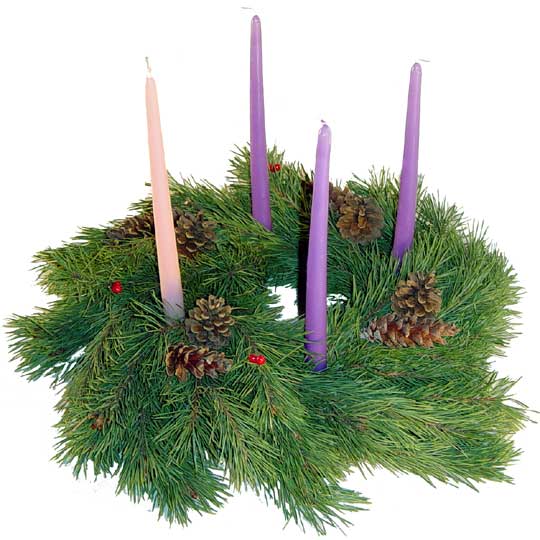What is Advent?
Yesterday, I asked a group of elementary-aged children this question. Keep in mind that these children have been “raised” in church so the terminology of “advent” was not unfamiliar to them. But the answers… oh, the answers… seriously, one of the reasons I love working with kids.
Advent is…
… when you can’t find the angel for the top of tree and you look all over the house for it
… a fun trip into the jungle (I think he meant “adventure”)
… when you light candles on the tree branches that fall off the tree (as pictured)
… that thing you use to light Christmas lights
… the songs you sing at Christmas time
Admittedly there were some closer guesses, “countdown to Christmas” being the most popular one, but in reality, most of the kids had no idea about the heart and the wonder behind the season of Advent. And that got me thinking? Why? I know for a fact that Advent has always been celebrated at this church. Every year on the four Sundays leading up to Christmas, candles had been lit and Hope, Peace, Joy and Love talked about. Liturgical Scriptures were read and Advent vespers services were held. But somehow, the whole meaning behind the celebration of Advent was missed by the children.
I’m not picking on my church. I’m not even picking on Advent. In fact, I don’t think I’m picking on anyone or anything but I am wondering, how much of what we do on Sunday has meaning for us on Monday? You see, lighting the candle of Hope on Sunday doesn’t mean a whole lot to me or you (or to our kids) if we don’t talk about that hope, contemplate that hope, and celebrate that hope for the rest of the week. Reading beautiful Scriptures of God’s promises and love for us doesn’t mean a whole lot if it stays inside the church walls and never makes it to our dinner table, our car ride, our community, and our job. Singing a few hymns of Christmas joy won’t impact our lives until we consider the words and use them to praise God on our recliner at home as much as we do our pew at church.
Celebrating Advent is not something every church does or every family does. I get that, I do. But the reality is, if we are “doing” something at church and not “doing” that same thing the rest of the week, we are compartmentalizing our faith to a building instead of incorporating our faith into transformed lives. I’m not saying you have to light an Advent candle every night. But I am saying if you want your children to know about the Hope of Christ, you need to talk about it every day. I’m not saying you have to sing Christmas carols in the car, but I am saying you need to model a life of worship everywhere you go. I’m not even saying you have to read Scripture out loud in front of your family, but I am saying that Scripture needs to be a part of your everyday conversations with your kids.
I once asked a similar group of kids what church was. My answers ranged from “A building we go to on Sunday” to “Where God lives.” I know these are kids and “kids say the darndest things” but let’s be real for a minute. If we live lives that say “Church is a building we go to on Sunday because God is there” how else are our children to interpret our faith? What if instead we told our kids, “Church is the family of God and He is always with us so we are always in church?” Not with those words, but with our lives.
Spontaneous worship. Times of prayer. Lighting of candles. Corporate worship. Waiting expectantly in hope for the arrival of Christ. These things don’t need to be limited to a place, a time, a special moment. These things can be lived all year long and our lives can be a living testimony to a vibrant, growing faith. Our kids still might not know what Advent is, but while we are searching for that lost angel or tramping through the jungle, we can do it while proclaiming Hope, Peace, Joy, and Love as we anticipate more of Christ in our lives.


0 Comments